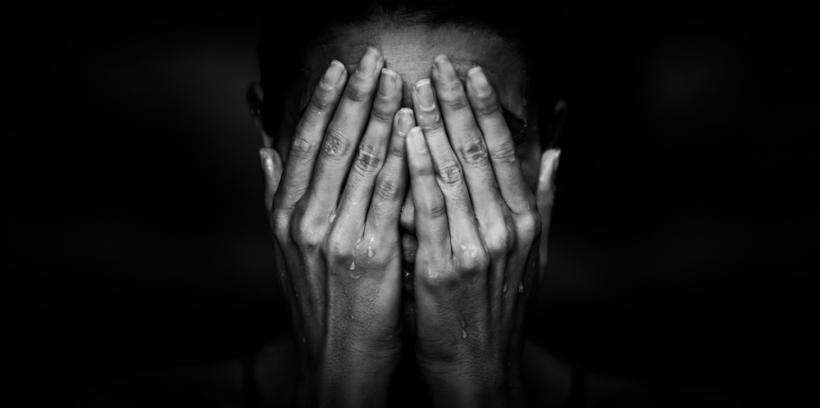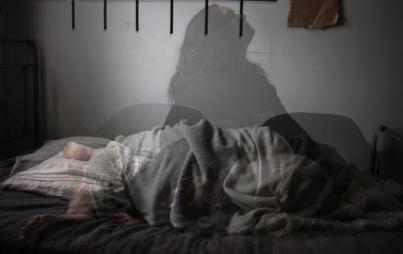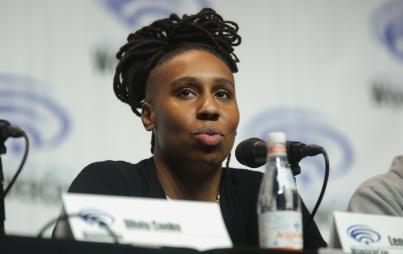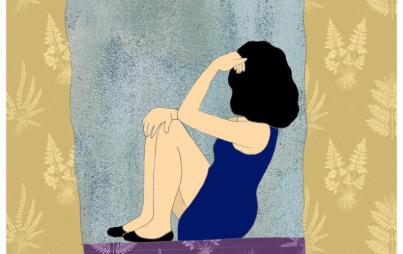
No one wants to admit to being raped.
Every morning when I leave my Brooklyn apartment, there is a group of men who linger outside the bodega on my corner. And every morning, regardless of what I wear, they leer. Sometimes they catcall. At times, these men have become angry when I ignore them.
My experience with catcalling began when I was barely a teenager. When you’re that young, your sexuality is often so far from your reality that you don’t even register how it affects you until long after.
It’s impossible to say that attractiveness or provocation have anything to do with it (or to imply that people dress for the attention of men, instead of, say, themselves). If that was the case, why would adult men find my 11-year-old body provocative? My mother dressed me when I was that age, and I highly doubt most mothers dress their kids in clothes hoping for men to leer at or harass their daughters.
When I was barely 12, I was grocery shopping with my mother. I can’t remember what I was wearing. It doesn’t matter what I was wearing. I do remember walking by a man, a grocery store clerk, while in the milk aisle. He was staring at me. I remember feeling uncomfortable, wondering why—and as I passed him by, he pulled a lock of my hair—and as I turned to look back, I saw him wink. I was confused. I tried to forget the incident. I mostly did.
But variations of this violation have happened throughout my entire life, just like they’ve happened to countless others all over the world.
A man on the subway once said I looked so delicious, he’d love to kill me and eat me.
A boy at a high school dance grabbed me. I punched him back. I was 15.
A man raped me when I was 20. He raped me once while I was asleep, and he raped me again while I was awake. I said no, and he did it anyway. He slapped the side of my head; I decided it wasn’t worth protesting. At the time, we had been dating for a month. A psychologist told me I wasn’t raped because the person was my boyfriend—as if intimate relations with someone you know don’t count.
A man grabbed my breasts at a writing conference while I was selling books.
Another man grabbed my ass while meeting me for coffee because he was an editor who claimed to be interested in my work.
While at Coney Island watching 4th of July fireworks this summer, a man grabbed me from behind while I was walking to the subway. He and his friend laughed as I scurried away.
Another time, a man on the subway licked his lips at me, kept winking, and touched himself.
On my 19th birthday, a man I was dating forced me to give him a blowjob.
An ex-boyfriend tried to force me to have sex with him knowing I had been raped the year before. He guilted me for a long time, called me a tease, said it wasn’t fair, implied I owed it to him. Made me feel like my body wasn’t mine. Made me feel like I should consent. Made me feel like consent isn’t mine to give. I refused. I “got away” that time, but what if I was more vulnerable and believed him because he told me he loved me?
My former professor who harassed me for years, both while and after I was his student.
These are only some of the times I was touched when I didn’t want to be, when I didn’t consent, and when men routinely tried to take advantage of me and assert their power so I could be powerless.
I’m not the only one, either.
It’s not just about Harvey Weinstein. Or Bill Cosby. Or Woody Allen. Or Roman Polanski. Or Donald Trump. Or Roger Ailes. Or Bill O’Reilly. This isn’t just about Hollywood or actresses. It’s every industry and every family.
What struck me recently, out of everything that has come out of the Harvey Weinstein nightmare, was this statement a former employee at the Weinstein company said to Ronan Farrow: “He’d never had to do anything like Bill Cosby.” That stuck out to me because it’s true for most survivors of abuse. You don’t have to be drugged to be raped. Sometimes rapists have wives or girlfriends whom they never abuse, and sometimes they have mothers who could never imagine their monstrousness.
Not all rapists look or act like rapists. Some of the men who abused me are considered “nice people.” By all outside factors, they appear altruistic. They publish and stand up for queer people and people of color. They are artists and writers who are “sensitive” and agree intersectional feminism is right, that equality is right.
Somewhere along the lines, however, there is a disconnect between what they say or believe and act. That disconnect comes from the need to control, to have power, to get what you want.
The insidious thing about all of this is the fact that abusers who are in positions of power are often capable of silencing their victims. No one wants to rock the boat; no one wants to ruin their careers. No one wants to be humiliated.
No one wants to admit to being raped.
It’s easy to perpetuate silence and focus on beautifully curated Instagram posts about beaches and ice cream dates. Or maybe, just maybe, you convince yourself it was a mistake, that he didn’t mean it, that it was the heat of the moment—or worse, that it was your fault because you froze, didn’t say no enough, or seemed to consent.
Being a rape survivor isn’t just about being a woman. Many women in the U.S. have been raped (1 in 4, to be exact, which means you know someone who has been assaulted). But we cannot look at this as just a women’s issue, although it most definitely is—and it is absolutely a feminist issue. It is also, however, an issue for all genders, especially for the queer community.
You Might Also Like: I Named My Rapist On Facebook. I Wasn’t Prepared For What Happened Next.
Often, transgender, queer, and non-binary people are excluded and erased from the conversation. As a non-binary femme, I understand this only too well—which is also why the focus on how women present themselves and dress, what they do and say in the moment, ignores so many issues and nuances.
What about rape in the queer community? What about a survivor who isn’t a woman but isn’t a man either? Focusing on the stereotypical binary assumes that a survivor is only a conventionally pretty woman (often portrayed as white) and not anyone else. This limits the way society empathizes and identifies with victims.
While most people don’t mean to exclude the queer community, lazy language, regardless of intention, gives little space to anyone who doesn’t fit the status quo. Lazy language is why myths, stereotypes, and victim shaming still happens, even at the hands of self-identified feminists. Lazy feminism is dangerous, and it’s one of the many reasons why men get away with monstrous behavior and why men are allowed to stay monsters, even long after their abuse, their excuses, and their “apologies.”
During the Weinstein scandal thus far, most of the language around sexual assault focuses on cisgender and white women, which erases the narratives of other marginalized people. While there is nothing wrong with a cisgender white woman coming forward about her assault, this isn’t the only narrative—and shouldn’t be the only narrative we make room for.
It’s time for us to do better if we want to start being truly inclusive and empathic, if we want to start saving lives from being extinguished and ruined and burned by trauma.
Coming out as a survivor is a thankless task. You don’t gain money or fame or prestige when you admit to being raped. I “came out” so other people wouldn’t feel responsible for their attacks, wouldn’t feel as alone—and so maybe another person isn’t raped.
Being honest about being raped hasn’t made my career any easier, either as a teacher or a writer. As a former high school teacher, I had to hide a lot of my writing because it wasn’t “appropriate” for my students. I was told to take extra precautions to hide my work. A student threatened to kill me and shamed me for my sexuality (which happened partially because he read one of my poems about my sexual assault). As a writer, I’d like to think publishers wouldn’t think my being a survivor makes me “complicated,” “difficult,” or “too edgy,” but I know that isn’t necessarily true.
Despite the disadvantages, I believe survivors. I believe in survivors, and I believe that survivors should come forward if they can emotionally and physically. Now more than ever, the world needs these stories. We cannot create a better world without these stories and these people.
It’s not about me. It’s about all of us. People die from this. People are killed and fired and silenced because of their rapists all the time. This is when I whisper to you, in your ear softly, not again. Not again. Not again.








